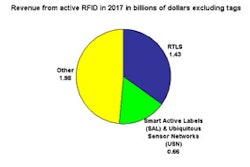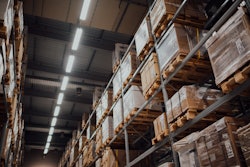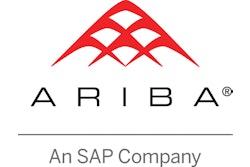The United Arab Emirates (UAE) has gained much media attention lately as a leading marketing and trans-shipment hub for multinational companies serving the Middle East and North Africa. Bordering the Gulf of Oman, Persian Gulf, Saudi Arabia and Oman, the UAE is strategically placed as a regional hub and gateway between Europe and Asia.
According to the National U.S.-Arab Chamber of Commerce, U.S. imports into the UAE grew nearly 41 percent from $8.5 billion in 2005 to $11.9 billion in 2006, making it the No. 1 U.S. export destination in the Middle East. Overall, nearly $72.3 billion in goods were imported in 2006, most flowing from India, followed by China and Japan. By year's end, the United States expects to claim nearly a 20 percent share of the UAE's import market.
As businesses increasingly export goods to the United Arab Emirates or establish the country as a key link on their global supply chain, what are some of the trends and issues that companies should keep in mind to help succeed in the region while maintaining regulatory compliance?
Current Trade Environment
The UAE is a Federal Sovereign State, formed in 1971, consisting of seven emirates — Abu Dhabi, Dubai, Sharjah, Ajman, Umm Al Quwain, Fujairah and Ras Al Khaimah — and governed by the Supreme Council of the Federation, which is made up of rulers from each emirate. A contracting party to GATT since 1964, the UAE joined the World Trade Organization (WTO) in 1996. The main federal legal instruments on investment in the UAE are the Commercial Companies Law and the Trade Agencies Law and these laws contain provisions limiting and regulating the participation of foreign investors in the UAE domestic economy. Specifically, the Trade Agencies Law designates that importing and distribution activities are reserved for exclusive UAE "agents." However, a significant portion of trade moves through the UAE's free zones (22 in late 2005) where foreign investors can enjoy 100 percent ownership, operate in a tax-free environment and be exempt from the licensing, agency, "emiratization" (hiring of nationals) and national majority-ownership obligations that apply in the domestic economy. Recently, changes have been made to the scope of the Trade Agency Law and reforms are being actively discussed such as adoption of competition legislation, structural reforms, and further liberalization of the services sector.
Logistics, transportation, telecommunications, tourism, insurance, construction and the energy sector are considered to be major areas for future investment. The financial sector is developing rapidly, in part through the creation of financial free zones such as the Dubai International Financial Center, a financial free zone regulated by the Emirate of Dubai and home now to more than 100 financial services and associated companies.
The main products being imported into the UAE include aircraft (most notably, the development of indigenous flag carriers is seen as an important economic catalyst to economic sustainability), automobiles, drilling equipment, industrial engines and agricultural machinery. In addition, the iron, steel and manufactured metal product industries continue to grow. Many expansion projects are currently taking place, with the expectation that the Gulf region will become one of the important world centers for iron and steel consumption within a few years. Steel requirements in the UAE are expected to grow to 4MM tonnes in the medium term from the current level of 2.5MM tonnes. The Emirate of Abu Dhabi, according to the Abu Dhabi Chamber of Commerce and Industry, is expected to invest more than $200 billion by 2010 in construction, water, electricity and tourism. Another $33 billion is slated for industry, including $22 billion for oil and gas projects. The country is investing in growth and expecting to remain a major trade hub for the region.
The UAE realizes that the best way to attract foreign investment is to promote trade-friendly policies. International companies setting up in the UAE can obtain significant cost advantages not generally available internationally. The major factors are no foreign exchange controls; no trade barriers or quotas; competitive import duties (usually 5 percent with many exemptions); competitive labor costs — labor force is multi-lingual and skilled; competitive energy, financing and real estate costs; and no corporate profit or personal income taxes (except for oil companies and branches of foreign banks). An estimated 70 percent of UAE's trade passes through the Emirate of Dubai, which has created a favorable environment for inward investment over the past few years. Today, Dubai enjoys a global reputation as a major economic hub for foreign multi-national corporations (MNCs) due to:
- Relative ease of setting up and operating a business
- Large presence of mature free zones enabling easy import and export operations, warehouse storage to hold inventory; and support of a sophisticated customs organization and logistics industry
- Cosmopolitan lifestyle that attracts businesses to set up their regional offices
The largest contributor to trade is the Jebel Ali Free Zone where around 5,500 companies from more than 120 countries currently operate. Exciting new projects in Dubai include the Dubai World Central, a planned residential, commercial and logistics complex adjacent to the Jebel Ali Free Zone and Port. This development will also house Dubai Logistics City, the world's first truly integrated logistics platform, with all transport modes, logistics and value added services, including manufacturing and assembly, in a single bonded and Free Zone environment. In addition, a new international airport is being built to handle annual freight capacity of 12 million tonnes and passenger capacity of more than 120 million.
Tips for Incorporating UAE into your Global Supply Chain
1. Educate key players on export controls — Nearly 25 percent of all goods imported into the UAE are then re-exported to regional markets. This is due to the fact that the UAE continues to be a trade hub where inventory for the region is held and requirements for late market customization and similar needs are met through a mature logistics industry. Do the key supply chain players within your organization understand that your company could face high fines or penalties if goods are re-exported to countries or individuals that appear on international restricted party lists? In the United States, fines have now reached the $100 million mark for companies found to be violating export regulations unintentionally or otherwise.
- Action: Consider hiring an outside trade expert to conduct an export compliance awareness session. Anyone within your organization involved in making decisions that have an impact on with whom the company does business or where goods are being sent should attend. This could include compliance managers, sales/export managers, logistics/supply chain managers, and financial managers. Senior management should also consider attending as they could be deemed legally responsible for the trading activities of their company.
2. Stay current with regional trade regulations — It is often challenging for companies to stay up-to-date on regional trade challenges, trends and regulations. According to a leading automotive component manufacturer with significant presence in the Middle East, their head office in the U.S. does distribute updates on trade regulations, but these updates have no relationship or connection to trade in the Middle East region.
- Action: Does your company have real-world insight into actual Middle East trade challenges and how other companies are addressing these issues? If not, your company is probably not competitive in the region.
3. Leverage Free Trade Agreements — The Gulf Cooperation Council (GCC) is an economic and political policy-coordinating forum for the six-member states, including the United Arab Emirates, Bahrain, Kuwait, Oman, Qatar and Saudi Arabia. The UAE, as part of the GCC, is currently pursuing FTAs with the EU, Australia, New Zealand and Japan. The GCC continues negotiations with China, India and other nations. The United States is the only country with which the UAE is currently negotiating a bi-lateral FTA — a separate agreement that does not include the other GCC states. According to Adrian Gonzalez, director, Logistics Executive Council, ARC Advisory Group: "The complexity associated with understanding and leveraging Free Trade Agreements is beyond the scope of many companies because they either lack the expertise, resources, technology or all of the above to do it efficiently and cost-effectively. Many companies eventually come to a decision point: either invest internally or outsource to a trade expert."
- Action: Who have you identified within your organization as the focal point for FTA issues and opportunities?
4. Choose the right supply chain partner — A local supply chain/logistics expert with regional knowledge will help navigate the economic landscape. To be successful, a MNC needs processes and systems that aid in employing state-of-the-art and regulatory-compliant trade operations. A local expertise is required to understand the complexities of local rules and regulations, properly assess appropriate trade lanes, select qualified service providers, and outline activities that reduce risk, improve compliance, and streamline the flow of cross border shipments in the region. One option is to outsource trade operations and employ off-shore documentation management in order to achieve financial savings and operational benefits.
- Action: When was the last time you evaluated your supply Chain/logistics processes and benchmarked them against global best practice?
UAE foreign trade with the outside world has made great strides in recent years. This trend is expected to gather more speed as the country gets more involved in the global economy and the government continues to increase spending on job creation and infrastructure expansion.








